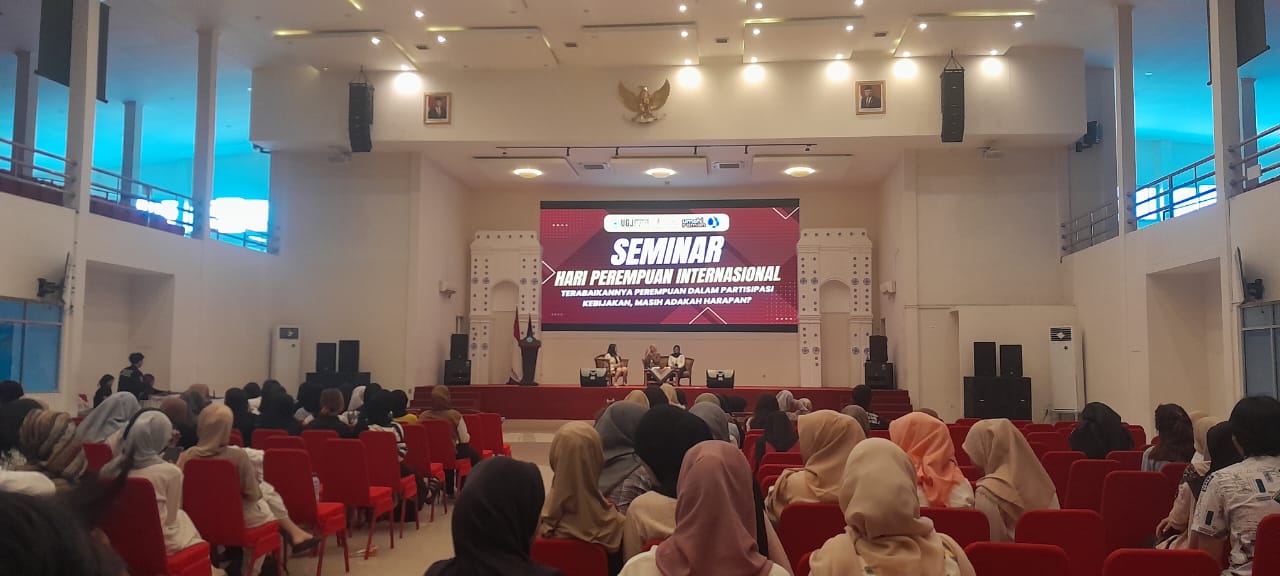By: Ahmad Hadid
Umah Ramah, Women March, and the Student Executive Board (BEM) of Swadaya Gunungjati University (UGJ) Cirebon are working together to hold a seminar to commemorate International Women’s Day (IWD). The activity with the theme “Women Are Neglected in Policy Participation, Is There Still Hope?”, was held in the Auditorium Room of Campus I UGJ on Friday, March 8, 2024.
The chief organizer, Yumna, explained that she would use the momentum of IWD 2024 to re-strengthen the commitment and role of students, lecturers and the entire academic community in dealing with sexual violence that occurs on campus.
“The role of students is still hampered in dealing with sexual violence that occurs on campus. We hope that with the momentum of commemorating International Women’s Day, we can re-increase our collective commitment to eliminating sexual violence in the campus environment,” she explained.
One of the speakers, Director of Umah Ramah, Asih Widyowati said that even though there is Minister of Education, Culture, Research and Technology Regulation (Permendikbudristek) Number 30 of 2021 concerning Prevention and Handling of Sexual Violence in Higher Education Environments, In fact, it is still challenging to prevent sexual violence on campuses.
In this regulation, every higher education institution is obliged to prevent sexual violence in three ways; through education, strengthening governance, and strengthening the culture of the student community, educators and education staff.
One of the strengthening of governance mandated by the regulation states that every campus is required to form a Task Force (Satgas) for the Prevention of Sexual Violence. Preventive measures, however, are still not at their best because many of the most fundamental issues surrounding sexual violence remain unresolved. One of them is the fact that a lot of people still believe that sexual violence is a minor issue.
“There are still many people who misunderstand sexual violence. People consider sexual violence to be a major incident such as rape, sexual exploitation, and so on. Even though little behaviors like flirting, catcalling, and acts that make someone feel uncomfortable in a sexual way are still common on campuses,” she said.
One of the students contacted after the event, Kartika, said that cases of sexual violence on campus are still difficult to handle. This is due to a lack of synergy between the Task Force and policyholders on campus.
“Even though there is a Task Force, what happens in handling cases often comes into direct contact with the police,” she said.
Article 6 paragraph 3 of Permendikbudristek Number 30 of 2021 states that apart from forming a Task Force, campuses are also required to make various efforts such as formulating policies; develop guidelines; providing case reporting services; train students, educators, educational staff and citizens; carry out regular outreach; and collaborating with related agencies to prevent and handle sexual violence. []
This article was translated by Napol Riel.
